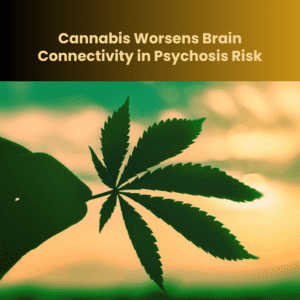30% of People Combine Coffee and Cannabis for Parkinson’s Relief

Study Finds Over a Third of Parkinson’s Patients Use Natural Health Aids Like Cannabis, Often Without Doctor’s Knowledge
A recent study published in the Journal of Parkinson’s has revealed that more than one-third of individuals with Parkinson’s disease are turning to natural health products, such as coffee and cannabis, to manage their symptoms. However, the study also uncovered a concerning trend: less than half of these patients have discussed their use of these products with their healthcare providers.
Study Details and Findings
The study, led by Sandra Diadhiou from Université Laval in Canada and Professor Bas Bloem from Radboud University Medical Center in the Netherlands, surveyed 367 Parkinson’s patients from across the Netherlands. All participants were part of the PRIME-NL (Proactive and Integrated Management and Empowerment of Parkinson’s Disease – Netherlands) database.
The primary goal of the study was to determine the prevalence of natural health product use among Parkinson’s patients and to assess their awareness of potential interactions with prescribed medications. The researchers also aimed to find out whether patients had informed their doctors about their use of these natural remedies.
Key findings from the study include:
- 36% of respondents reported using natural health aids like coffee and cannabis to manage their Parkinson’s symptoms.
- Among these, 16% used coffee, 13% used cannabis, and 10% used turmeric.
- Other supplements mentioned by respondents included velvet bean and chamomile.
- Only 39% of users were aware of possible interactions between natural health products and their Parkinson’s medication.
- Just 39% had discussed their use of these supplements with their healthcare provider.
Recommendations from the Study
The study’s authors made two primary recommendations based on their findings. First, they emphasized the need for additional research into the health benefits and safety of these natural products. Second, they strongly encouraged patients to have open discussions with their healthcare providers about their use of natural health aids to ensure both efficacy and safety.
Broader Context: Cannabis and Coffee for Parkinson’s
The findings of this study align with previous research, including a 2022 survey by the Michael J. Fox Foundation in the United States, which found that 70% of nearly 2,000 respondents were using medical cannabis for Parkinson’s, yet a third had not informed their doctors.
Cannabis for Parkinson’s: What We Know
While cannabis use for Parkinson’s is becoming more common, organizations such as the Michael J. Fox Foundation, Parkinson’s UK, and others have urged caution. Current evidence regarding the efficacy and safety of cannabis for Parkinson’s symptoms is still limited. Amelia Hursey, Research Manager at Parkinson’s UK, explained that while cannabinoids or CBD (a component of cannabis) may have potential as a relaxant, the variability in concentration levels makes it difficult to determine a safe and effective dose.
Parkinson’s UK is currently conducting a research trial to investigate whether Cannabidiol (CBD) could be effective in treating hallucinations and delusions in Parkinson’s patients.
Coffee for Parkinson’s: Mixed Results
The potential benefits of coffee for Parkinson’s symptoms have been the subject of debate. Some studies have suggested that caffeine might help slow the progression of symptoms, while others have found that certain symptoms may worsen with caffeine use. A recent study published in the Annals of Neurology in May 2024 concluded that caffeine does not improve Parkinson’s symptoms, highlighting the need for more research in this area.
Turmeric for Parkinson’s: Promising Potential
Turmeric, a spice derived from the curcuma plant, contains curcumin, which is believed to have medicinal properties, including antioxidant, anti-inflammatory, and neuroprotective effects. Previous studies, including one from Japan, have suggested that turmeric oil could be beneficial in treating Parkinson’s symptoms. However, as with other natural products, more research is needed to confirm its efficacy and safety.
The study published in the Journal of Parkinson’s underscores the importance of communication between patients and healthcare providers regarding the use of natural health products. As more individuals with Parkinson’s turn to these alternatives, it is crucial to ensure that their use is safe, effective, and well-coordinated with prescribed treatments. The study’s findings highlight the need for continued research into natural health aids and the development of guidelines to support informed decision-making for both patients and healthcare professionals.











